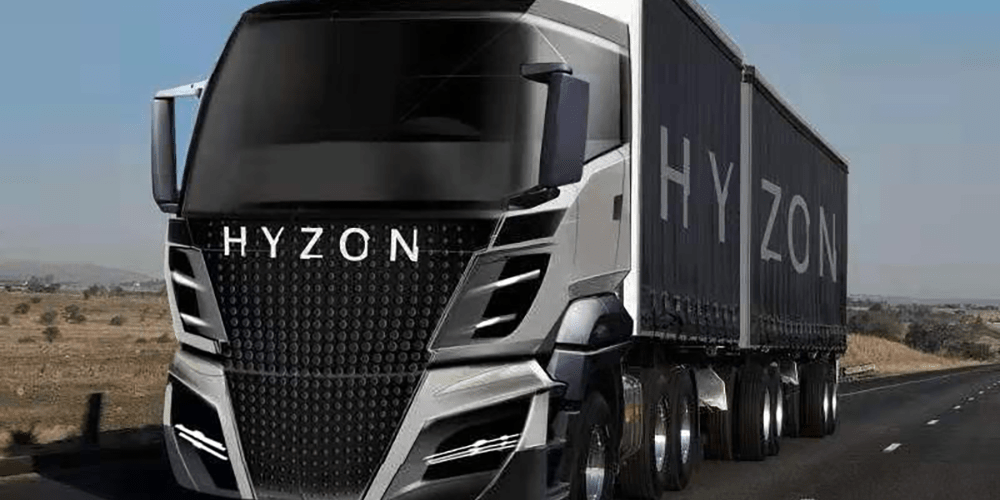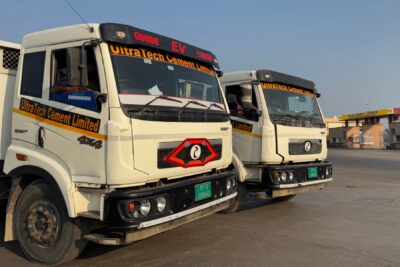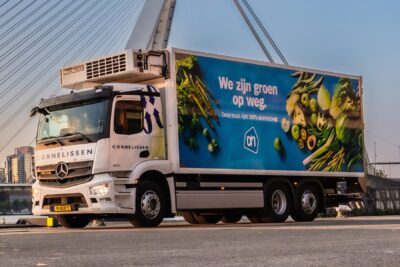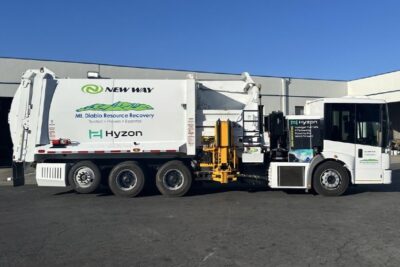Hyzon signs MoU for FCEV production in Saudi Arabia
Hyzon Motors plans to build an assembly plant in Saudi Arabia with the local industrial conglomerate Modern Group. The plant is to be built in the city of Neom in the northwest of the country and will have an annual capacity for the assembly of up to 10,000 FC commercial vehicles.
A memorandum of understanding (MoU) has now been signed between the developer of fuel cell commercial vehicles and the Modern Group. This states that the partners will establish a joint venture company called Hyzon Motors Middle East to facilitate plant construction. The locally manufactured fuel cell commercial vehicles are to be sold domestically and in the Gulf Cooperation Council (GCC) markets in the Middle East. These include Saudi Arabia, Kuwait, Oman, Qatar, Bahrain and the United Arab Emirates (UAE).
According to Hyzon Motors, the MoU sets out the parties’ current objectives concerning the assembly plant and delivery of the vehicles, but “these objectives do not constitute binding commitments on either party until definitive agreements are reached”. With the MoU, Hyzon and Modern Group are thus heralding a discussion phase in collaboration with the renewable energy experts at Neom Company, which is responsible for developing the planned city. Over the next 18 months, the three companies will work closely together to finalise the plans and specifications for the new regional assembly plant, they say.
The Saudi Arabian planned city of Neom is also said to be a possible alternative site for Lucid Motors’ Saudi plant, according to media reports. The future city – a 500-billion-dollar giga-project – is supposed to supply itself 100% with renewable energy. Green hydrogen is expected to play a key role in this. Hyzon says, “Neom is expected to become an area with one of the highest concentrations of green hydrogen production and investment in the world,” and has announced plans for a multi-dimensional hydrogen ecosystem.
Craig Knight, CEO and co-founder of Hyzon Motors, calls the planned city one of the world’s most innovative and ambitious decarbonisation developments. “We see Neom as one of the world’s most innovative and ambitious global decarbonization developments. Hyzon’s technology is at the forefront of hydrogen-powered vehicles and fuel cell solutions and has been developed over many years. This project is showing the way for resource-rich GCC countries to achieve the energy transition, and Hyzon’s partnership with Modern will help to make this a reality.”
Abdulaziz F. Al Hamwah, CEO and co-founder of Modern Industrial Investment Holding Group, says localising the production of zero-emission commercial vehicles is just the first step. “Through our joint venture, Hyzon Motors Middle East, we aim to integrate hydrogen fuel cell commercial vehicles into economies across the region.”
Just last week Hyzon Motors announced the Hyzon Zero Carbon Alliance. The new coalition of companies from different sectors headed by Australian Claire Johnson aims to advance hydrogen mobility worldwide. Modern Group and Noem, both involved in the Middle East projects, are also founding members of the alliance and Ark Energy, AXA, Bank of America, Hiringa Energy, Raven SR, ReCarbon and the energy giant Total. The Zero Carbon Alliance’s core concept and Hyzon Motors itself is to form a holistic hydrogen ecosystem, including the production and supply of green hydrogen. Along with Australia, where the Alliance is very active, the Middle East is another solar energy powerhouse and therefore ideal for producing green hydrogen to supply countries with less renewable energy potential, such as those in Europe or parts of Asia.
Now with this MoU, Hyzon has gone further than docking into the production of green hydrogen from the Middle East to supply Europe – it will now also be manufacturing the fuel cell heavy-duty commercial vehicles in the same location.
Hyzon Motors just announced its IPO in February and reported an order from New Zealand for a total of 1,500 fuel cell trucks for Hiringa Energy, similarly a founding member of the Hyzon Zero Carbon Alliance. In the United States, the company has two facilities in Rochester, New York State. One is a fuel cell testing facility, while the other facility houses the administrative headquarters, vehicle production and powertrain assembly. In addition, Hyzon is currently planning to build a production facility for membrane electrode assemblies (MEA) in Illinois.
For customers in the European Union, the company has recently launched a leasing service for heavy-duty fuel cell commercial vehicles. With this, the manufacturer says it aims to reach the level of diesel trucks in terms of the total cost of ownership. Hyzon plans to deliver “hundreds of heavy-duty fuel cell vehicles” in Europe by the end of 2021, according to an earlier announcement. The first vehicles are scheduled to arrive in Groningen in the third quarter of 2021.
The company was only founded in 2019 but had over 17 years of experience with fuel cell technology. The heavy-duty commercial fuel cell vehicle company Hyzon Motors started operations in March 2020 as a new standalone business born from Horizon Fuel Cell which is also led by Hyzon co-founders George Gu, Craig Knight and Gary Robb. Hyzon Motors is commercializing Horizon’s 17 years of hydrogen technology development for the transport sector. Hyzon Motors opened its European headquarters in Groningen in July 2020. By autumn of the same year, the company announced the financial participation of an unknown amount by the energy group Total as well as other investors.





0 Comments